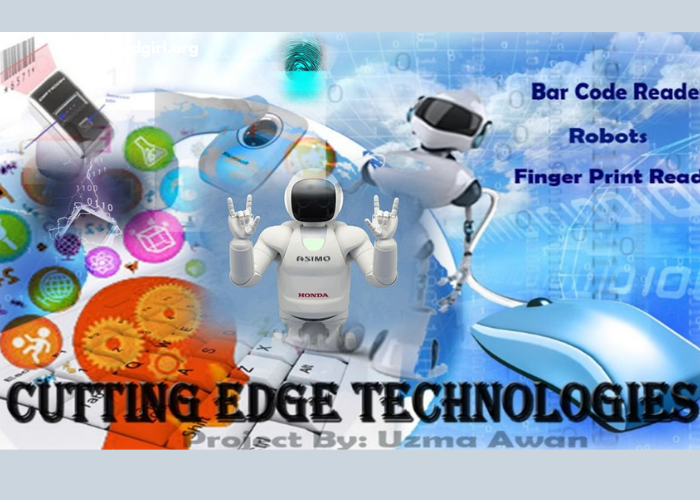Technology continues to evolve at a rapid pace, pushing the boundaries of what’s possible and revolutionizing industries worldwide. As we enter 2025, the advancements in technology are poised to bring about significant changes, improving the way we live, work, and interact with the world around us. In this article, we explore the most cutting-edge technology innovations expected to shape the landscape in 2025 and beyond. From artificial intelligence (AI) and quantum computing to advancements in healthcare and sustainability, these breakthroughs are transforming industries and creating exciting new possibilities.
The Rise of Artificial Intelligence (AI) and Machine Learning
The Role of AI in Transforming Industries
Artificial Intelligence has been at the forefront of technological innovation for years, but its impact is expected to intensify in 2025. AI and machine learning (ML) have already made significant contributions to sectors like healthcare, finance, and entertainment, and in the coming years, these technologies will become even more integrated into daily operations.
Healthcare Revolution
In healthcare, AI is playing a pivotal role in enhancing diagnostic accuracy and personalizing treatment plans. By 2025, AI-powered systems will assist doctors in identifying diseases earlier, suggesting optimal treatments, and even predicting patient outcomes. For example, AI algorithms are already being used to analyze medical images, detecting conditions such as cancer with impressive accuracy. As these systems become more advanced, they will be able to integrate various data points, such as genetic information and lifestyle factors, to create customized health plans for individuals.
Autonomous Vehicles
Self-driving cars are another example of AI’s transformative potential. By 2025, autonomous vehicles will become mainstream, drastically reducing accidents caused by human error and transforming the way we think about transportation. AI will not only drive vehicles but also optimize routes, improve energy efficiency, and enhance passenger experiences.
AI in Business and Customer Experience
Businesses are increasingly leveraging AI to streamline operations and improve customer engagement. Chatbots powered by natural language processing (NLP) are already a standard feature on websites and mobile apps, providing 24/7 customer service. In 2025, AI will become even more sophisticated, offering hyper-personalized experiences and anticipating customer needs in real time.
For example, AI-driven predictive analytics will enable companies to forecast trends, manage inventory more efficiently, and optimize marketing campaigns. Machine learning algorithms will analyze vast amounts of data to identify patterns and make predictions, allowing businesses to make informed decisions faster than ever before.
Quantum Computing: The Future of Processing Power
What Is Quantum Computing?
Quantum computing is another revolutionary technology that is poised to change the way we process information. Unlike classical computers, which use bits to represent data in either a 0 or 1 state, quantum computers use quantum bits, or qubits, which can exist in multiple states simultaneously. This ability enables quantum computers to solve complex problems at an exponentially faster rate than traditional computers.
Applications of Quantum Computing
In 2025, quantum computing will make significant strides in fields that require immense computational power, such as cryptography, drug discovery, and materials science.
Advancements in Cryptography
Quantum computing has the potential to break traditional encryption methods, which are widely used to secure online transactions and communications. However, it also opens up new possibilities for quantum encryption techniques, which could offer virtually unbreakable security. Governments and businesses are already investing heavily in quantum cryptography research to prepare for the era of quantum computing.
Drug Discovery and Healthcare
One of the most exciting applications of quantum computing is in drug discovery. By simulating molecular interactions at an unprecedented level of detail, quantum computers could help researchers design new drugs more quickly and accurately. In 2025, quantum computing may accelerate the development of treatments for diseases like cancer, Alzheimer’s, and even rare genetic disorders.
5G and Beyond: The Future of Connectivity
5G Networks: Speed and Reliability
5G technology is already beginning to roll out across the globe, and by 2025, it is expected to be fully operational in most regions. This next-generation wireless technology promises lightning-fast data speeds, low latency, and improved network reliability, opening up a world of new possibilities.
Smart Cities and IoT
One of the most significant impacts of 5G will be its ability to support the Internet of Things (IoT) on a massive scale. With 5G’s high bandwidth and low latency, it will become feasible to connect millions of smart devices, from wearable health trackers to autonomous vehicles, in real time. This will lay the foundation for the development of smart cities, where everything from traffic lights to public transportation will be optimized through data-driven insights.
Virtual and Augmented Reality
Another area where 5G will have a profound impact is in virtual reality (VR) and augmented reality (AR). These immersive technologies require significant data processing power and low latency to function effectively. With 5G, VR and AR experiences will become more realistic and accessible, revolutionizing industries such as entertainment, education, and remote work.
Beyond 5G: 6G and the Future of Connectivity
While 5G is still in its early stages, researchers are already looking ahead to the next frontier in connectivity—6G. Expected to roll out in the 2030s, 6G will offer even faster speeds, lower latency, and enhanced network reliability. This will further enable innovations such as holographic communication, where people can interact with 3D images in real time, and the fully connected metaverse, a virtual world that mirrors the physical one.
Sustainable Tech: Innovations for a Greener Future
Green Energy Solutions
As climate change becomes an increasingly urgent issue, technological innovations are playing a key role in the transition to a sustainable future. In 2025, we can expect to see significant advancements in clean energy technologies, including solar, wind, and energy storage systems.
Solar Power and Energy Storage
One of the most promising areas of development is solar energy. The efficiency of solar panels is expected to continue improving, with new materials and designs allowing for higher energy output. Additionally, energy storage technologies, such as advanced batteries, will enable more effective use of renewable energy by storing excess power for later use, ensuring a constant supply of energy even when the sun isn’t shining.
Carbon Capture and Storage (CCS)
Another key innovation in sustainable technology is carbon capture and storage (CCS). This process involves capturing carbon dioxide emissions from industrial sources and storing them underground to prevent them from entering the atmosphere. By 2025, CCS technologies are expected to become more efficient and cost-effective, playing a critical role in reducing global carbon emissions.
AI and Sustainability
AI will also be a critical tool in driving sustainability efforts. Machine learning algorithms can optimize energy use in buildings, factories, and transportation systems, reducing waste and lowering carbon footprints. Additionally, AI-powered systems will help monitor and manage natural resources, improving agriculture practices, water usage, and biodiversity conservation.
Biotechnology and Healthcare Innovations
CRISPR and Gene Editing
In the field of biotechnology, the CRISPR gene-editing technology is expected to make significant strides by 2025. This revolutionary tool allows scientists to precisely edit DNA, offering the potential to treat genetic disorders, enhance crop yields, and even create new forms of life. While ethical concerns remain, CRISPR is poised to play a major role in the treatment of diseases like cystic fibrosis, sickle cell anemia, and muscular dystrophy.
Personalized Medicine
Advances in genomics and biotechnology will also lead to the rise of personalized medicine. By 2025, doctors will be able to design treatment plans tailored to an individual’s genetic makeup, ensuring more effective therapies with fewer side effects. This approach has the potential to transform cancer treatment, as well as treatments for rare genetic disorders.
Brain-Computer Interfaces (BCIs)
Another exciting area of innovation in healthcare is the development of brain-computer interfaces (BCIs). BCIs enable direct communication between the brain and external devices, offering new possibilities for people with disabilities. By 2025, BCIs may be used to help individuals with spinal cord injuries regain mobility, or to allow patients with neurological disorders like ALS to communicate more effectively.
Conclusion: A Glimpse into the Future
The technology innovations expected in 2025 are nothing short of revolutionary. From AI and quantum computing to 5G and sustainable tech, these advancements are set to change the way we live, work, and interact with the world. While the future remains uncertain, one thing is clear: we are on the cusp of a technological revolution that will reshape our lives for generations to come.
The next few years will witness breakthroughs that were once thought to be impossible, and as these technologies evolve, they will continue to create new opportunities, challenges, and possibilities. As businesses, governments, and individuals adapt to these changes, we will see a new era of innovation that promises to improve the quality of life and address some of the world’s most pressing challenges.





